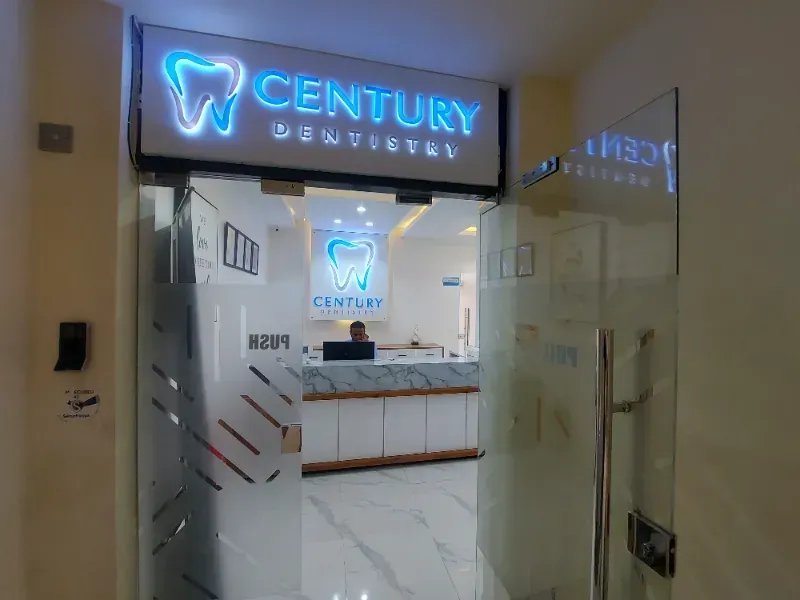Our Range of Services
Routine Dental Check-ups
Routine checkups and examinations are a critical part of preventive dental care.
We do a thorough assessment to note existing dental issues and their interrelation with your general health, to give you a complete outlook on your oral health status.
Dental X rays
We offer a variety of dental X-rays to assess your oral health as part of your routine checkups.
This is an aid to formulating a diagnosis in addition to the examination. We assess for any signs of dental and gum issues not visible during clinical examination.
Scaling and Polishing (Regular Cleaning)
Even with the most stringent oral hygiene regimens, some areas cannot be cleaned thoroughly.
In such areas, plaque biofilm accumulates and hardens to become tartar. Therefore, it is recommended to have scaling done every 6-12 months to clean tartar and dental plaque biofilm buildup in these areas.
Scaling and Root Planing (Deep Cleaning)
In periodontal disease, the gum either recedes or forms a ‘pocket’ next to the tooth. The exposed roots create a surface for plaque and tartar build up which worsens the periodontal condition.
In such cases, a deep cleaning is done and the root surfaces are made smooth to reduce plaque attachment.
Other adjunctive procedures may also be advised to make those areas accessible and cleansable, including the use of waterflossers, periodontal surgery, and restorations among others.
Fluoride Therapy
This involves applying fluoride in different formulations (varnish, gel) on the teeth surfaces for a certain duration.
This is done in patients at high risk of developing cavities, to reverse the early stages of caries (remineralization) and to alleviate tooth sensitivity as a result of periodontal disease and gum recession.
Pit and Fissure Sealants
In children and adults, most premolars and molars have deep and narrow pits and grooves/fissures, which are not amenable to thorough brushing (the fissures being too narrow for a bristle to access).
It has also been shown that most cavities start from these surfaces, thus posing a risk for caries development. Therefore, they are sealed to prevent caries from developing on those surfaces, and make brushing much more thorough and easier.
Orthodontics/Braces
In cases of malaligned or crooked teeth that affect oral hygiene, eating, aesthetics, self-esteem, and confidence, we advise having braces to correct the teeth' position and bite and to make taking care of your teeth easier.
Braces are fixed appliances that move teeth slowly over time to correct positions to ensure a harmonious relation between the teeth and between the teeth and the Temporomandibular joints (TMJs).
Dental restorations/ Filling
When a tooth is broken down or has a cavity that doesn't involve the nerves, a filling is done to restore the function and form of the teeth. This typically involves - evaluation with X-rays to assess the extent of damage beforehand.
We offer tooth-colored composite fillings that are aesthetic, compared to their predecessors (silver amalgam fillings), durable, and safe for boys.
Root canal treatment
This is another common dental procedure aimed at removing damaged or infected nerve tissue from the tooth and filling it with an inert material.
It is particularly performed to alleviate acute pain, treat infections, and save the tooth, which would otherwise need to be extracted.
Tooth extractions
Normally, when a tooth is broken down beyond repair or has had a catastrophic fracture, we advise having the tooth extracted.
We have the following types of extraction:
- Deciduous (Milk) tooth extraction: When they are overdue to be shed or damaged beyond repair.
- Simple permanent tooth Extraction: When the permanent tooth is in the mouth and needs to be extracted for some of the reasons mentioned.
- Surgical Extraction/Disimpaction: This procedure involves the surgical removal of a tooth that has not fully emerged or has only partially emerged into the mouth. The teeth most commonly impacted and requiring surgical removal are wisdom teeth, extra teeth (supernumerary), and canines.
Dental crowns
A crown is a cap-like restoration cemented onto severely damaged teeth, often following root canal treatment or significant wear. It serves to protect and reinforce the tooth during use. Crowns can be made from ceramics, gold, metal-ceramic composites, or stainless steel.
To fit a crown, a minimal amount of the tooth (about 0700601315 mm) is prepared to create space for the crown material. While waiting for the permanent crown to be fabricated in the lab, a temporary crown may be placed.
Dental veneers / Laminate Veneers
These thin restorations, typically crafted from porcelain or other ceramics, cover the front surface of the teeth to enhance their appearance and aesthetics.
They can also address minor misalignments when orthodontic treatment is not feasible or desired. Often called half crowns, they are used to dramatically transform a person's smile.
Dental bridges
These are multiple splinted crowns used to replace one or more missing teeth, with natural teeth present on one or both sides.
The process involves preparing the supporting teeth, and its main advantage is that it does not require surgery.
Dental implants
These root-like structures, typically made of titanium or ceramic, are implanted into the bone to support prosthetics such as crowns or bridges.
They are considered the best option for replacing missing teeth. However, a thorough evaluation is required to determine their suitability.
Dentures
Dentures are removable appliances designed to replace some or all missing teeth. Typically, they are taken out at night before bed.
Partial dentures, which replace only some teeth, are usually made from either acrylic or chrome-cobalt with acrylic. Complete dentures, in contrast, replace all missing teeth on one or both arches and are generally crafted from acrylic.
The process of making complete dentures involves several appointments to ensure a proper fit. Among the three main options for tooth replacement, complete dentures are the most economical.



